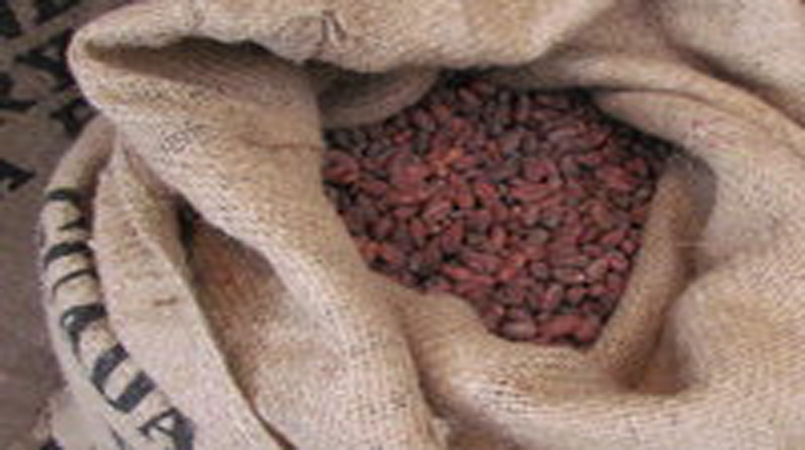
Solomons Gold, Fijiana Cacao, the Bougainville bar and Whittaker’s single origin Samoan – Cacao extra dark are the names of chocolate bars being made using cocoa beans sourced from the Pacific Islands.
As the demand for chocolate products rises in regions such as Asia and Africa due to higher standards of living, promotions and new products on the market and decreasing volumes of cocoa bean supplies traditional suppliers such as Central America, Kiwi manufacturers are turning to their ‘backyard’ in the Pacific to source cocoa beans closer to home. Their support is contributing to the uplift of the economies of local village communities.
This year Pacific Trade & Invest (PT&I) NZ assisted Tauranga based New Zealand chocolate manufacturers with their marketing efforts. Commodity Corporation (C-Corp) Solomons Gold General Manager, Glenn Yeatman and Tomo and Harumi Zukoshi of Fijiana Cacao attended the Auckland Coffee and Chocolate Show earlier in the year. It was a perfect opportunity for chocolate manufacturers to market to a specific target audience of chocolate and coffee lovers.
Fellow exhibitors, Wellington Chocolate Factory, Gabe Davidson and Rochelle Harrison had also discovered a supplier in Bougainville cocoa farmer James Rutana and were in the process of organising a shipment of one tonne of cocoa beans to New Zealand via tradition sailing methods – the vaka. But other chocolate exhibitors had also tapped into cocoa bean supplies from Samoa. Whittaker’s, New Zealand’s biggest chocolate manufacturing company, had a new single origin Samoan bar – Cacao extra dark.
A study carried out by Margaret Ilala of Organic Fair Trade under the Pacific Agribusiness Research & Development initiative (PARDI) found that traditional cocoa producing countries were struggling to meet demand and although 18 per cent of cocoa bean supplies came from the Pacific countries such as PNG, only 10% was being sold to the premium market. Returns from cocoa were much greater compared to copra, coffee and other cash crops.
With the global market expected to grow to $98.3 million in 2016, premium chocolate could grow to 13 per cent of the market, opportunities existed for Pacific island cocoa producers to take advantage of the demand. With a little help. That’s where the Kiwi companies came into play by providing a market for the Pacific producers.
The Wellington Chocolate Factory embarked on the Wellington Chocolate Voyage, a historic and epic sea journey called to ship one tonne of cocoa beans from Bougainville to New Zealand and produce the Bougainville Bar. The traditional twin-hull vaka, the Uto Ni Yalo left Bougainville and arrived in Wellington on October 27, 2015 after 29 days at sea to an elated and relieved audience of followers.
But the journey had started back in July 2014 when international development worker Sera Price contacted WCF to see if they wanted to make their chocolate using Bougainville cocoa beans from James Rutana’s plantation. Rutana had been struggling with finding a market for his cocoa beans and was contemplating giving it up. They were interested and set about fundraising using the Kickstarter online crowd funding site. More than $37,000 was raised from about 450 donors. The money would be used to pay for the waka trip to bring the cocoa beans to New Zealand, the other portion would go towards funding better quality cocoa bean drying equipment at Rutana’s plantation. The better drying equipment would also mean higher prices for the cocoa beans. The one tonne of cocoa beans would produce around 12,000 chocolate bars, with 500 supplied to the Kickstarter donors and some supplied to gourmet chocolate producers to market Bougainville cocoa.
It’s a similar story with Tomo and Harumi Zukoshi, who moved from Japan to Fiji after discovering their paradise. They initially started out by producing sushi for their restaurant in Fiji. But on discovering several abandoned cocoa bean plantations they decided to use the cocoa beans to make ice cream for the restaurant. One thing led to another and demand for the chocolate sweet grew so much they swapped their sushi making venture for chocolate. And they haven’t looked back. The cocoa beans come from local village plantations who supply to Tomo and Harumi’s Adi Chocolates in Fiji aimed at high end hotels and resorts. They also created an international branded chocolate called Fijiana Cacao aiming it squarely at the premium end of the market.
Solomon’s Gold manufacturer Glen Yeatman also saw the potential for dark chocolate and set up a processing plant for the Solomon Islands grown cocoa beans in Tauranga. The first single origin Solomons Gold Chocolate bar was launched at the Auckland Chocolate and Coffee Show to an enthusiastic audience. The cocoa beans are supplied from the Solomon Islands and then processed in Tauranga and sold. The rejuvenation of cocoa exports from the Solomon Islands originated from earlier PARDI study that aimed to establish a national cocoa industry in Vanuatu and the Solomon Islands aimed at increasing the priced received by cocoa by 10 per cent.
